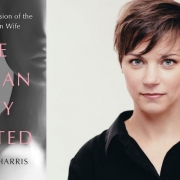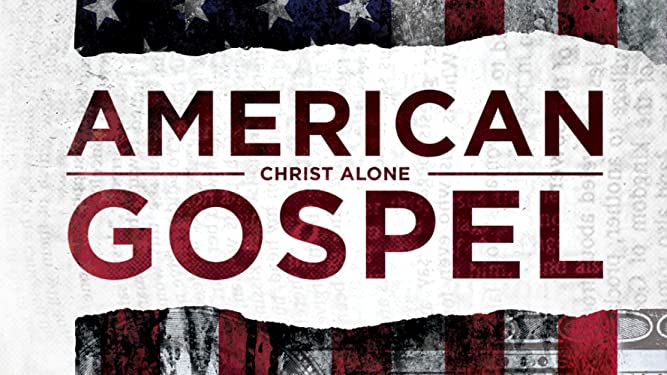BNG column sparks Thanksgiving Twitter war of words between complementarians and two female scholars
This article originally appeared on November 29, 2021 at Baptist News Global.
When David Gushee wrote his article “The Deconstruction of American Evangelicalism” for Baptist News Global, he kicked off what would become the focus of the next stage in the debate between conservative evangelical complementarians and their egalitarian counterparts.
That debate took the form of a Thanksgiving weekend Twitter war between representatives of the Council on Biblical Manhood and Womanhood and three of most prominent Christian authors currently pushing back against the kind of complementarian theology espoused by CBMW.
The disagreement appears to be not whether the Bible communicates objective truth but how the Bible’s revealed truth is interpreted or gets clouded by culture.

David Gushee
In his BNG piece, Gushee argued that the “intellectual underpinnings of evangelicalism are being deconstructed” by Christian scholars such as Kristin Kobes Du Mez, Beth Allison Barr, Jemar Tisby, Andrew Whitehead, Samuel Perry, and Jacob Alan Cook. According to Gushee: “‘Evangelical Christianity’ turns out to have been at a theological level little more than a rebranding of fundamentalism by a certain group of mid-20th century white men.”
Of course, this certain group of mid-20th century white men (and their heirs) soon would begin voicing their objections to Gushee’s piece.
The ‘Gushee-esque Deconstruction Project’ vs. ‘the Queen’
In response to Gushee, Jonathan Leeman wrote an article for the conservative Calvinist website 9 Marks arguing that:
- Evangelical doctrine is equated with the sound doctrine described in the Bible.
- The authors Gushee mentioned are coming from historical and sociological perspectives rather than a biblical studies perspective.
- Theology is being “dethroned as the queen of the sciences.”
- “The deconstruction project” is simply a postmodern criticism of hierarchy.

Jonathan Leeman
Leeman is a graduate of Southern Baptist Theological Seminary, works as an editor for 9Marks and is an elder at Cheverly Baptist Church in Maryland. Gushee also earned a master of divinity degree from Southern Seminary, but in a different era of the school’s ideology. Gushee has left the evangelicalism of his youth and young adult years; Leeman represents those defending the modern understanding of that very evangelicalism from a Calvinistic and complementarian perspective.
Complementarianism is the belief that God created men and women distinctly for different roles in church and home and that men always should exercise authority over women, even their wives, and that only men are biblically qualified to serve as pastors.
In response to Gushee’s article, Leeman proposes that pastors should:
- Ask if the hurt described by these authors is legitimate.
- See abusive power dynamics in light of the Calvinistic doctrine of total depravity.
- Admit their own temptations to power.
- Realize that connecting theology and power isn’t always bad.
- Discourage people from trusting historians too much.
- Reject any theology that emphasizes personal story more than objective biblical interpretation.
- Dismiss the “Gushee-esque ‘post-evangelical’ — a.k.a. liberal” approach of what he calls essentializing race.
Who’s afraid of the big bad wolves?
Leeman also implies that these authors are “wolves,” claiming that they “take a wicked delight in posturing as protectors of the hurt,” … “have managed to frame the conversation for the group,” … and “exploit these experiences to lead people into false teaching and church division.”

Kristin Kobes Du Mez
Du Mez took exception with many things Leeman wrote, saying that what Leeman wrote “not even remotely” describes what the scholars he criticized are doing. She tweeted: “You make so many unsubstantiated & incorrect assumptions throughout your piece & in this thread about me, my scholarship, & the discipline of history.”
Of all the issues she took with Leeman’s article and subsequent tweets, she especially confronted his “wolves” accusation. “If you must warn of wolves, be precise & get your facts straight. If you are unable or unwilling to do so, leave off the wolf talk,” she tweeted. She also called it “irresponsible at best,” and said it was “intellectually lazy, theologically insupportable, and, particularly in our current moment, dangerous.”
During the argument on Twitter, Leeman accused Du Mez, Barr and Tisby of approving Gushee’s post-evangelical theology because they had all thanked Gushee for his Baptist News Global article.

Beth Allison Barr
Barr replied: “I thank a lot of people I don’t agree with or identify with. It is called human decency. I also thank people who make good insights even if I wouldn’t agree with them theologically. Just because we disagree theologically doesn’t mean we dismiss good scholarship.”
After Leeman said to Du Mez, “Your entire book says that” it’s “only about gender and race,” Du Mez had to conclude: “I think I need to bow out at this point. If you’re not able to have a more nuanced conversation than that, to see the interplay between theology and culture that I describe and critique, I think we’re going to have to agree to disagree. On all of it.”
Who’s theology has been formed by culture?
While the Christian scholars Gushee cited in his Baptist News Global piece focus on different specialties, they all seem to agree that much of what conservative evangelicals assume to be clearly biblical is actually formed by a subculture of power.
Conservative evangelicals, however, believe their theologies are based on the clear teaching of Scripture.










Leave a Reply
Want to join the discussion?Feel free to contribute!